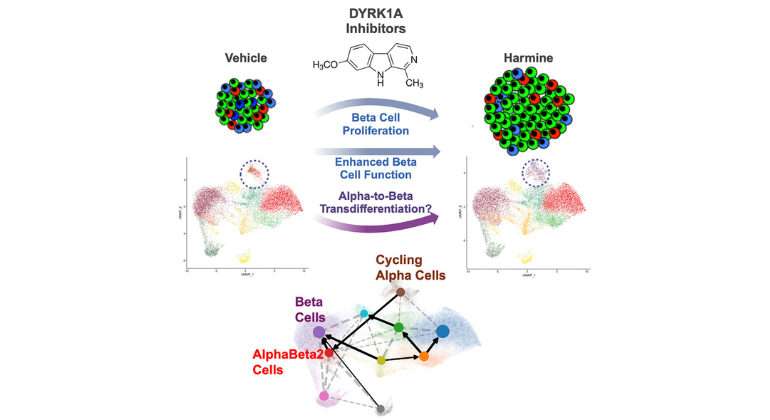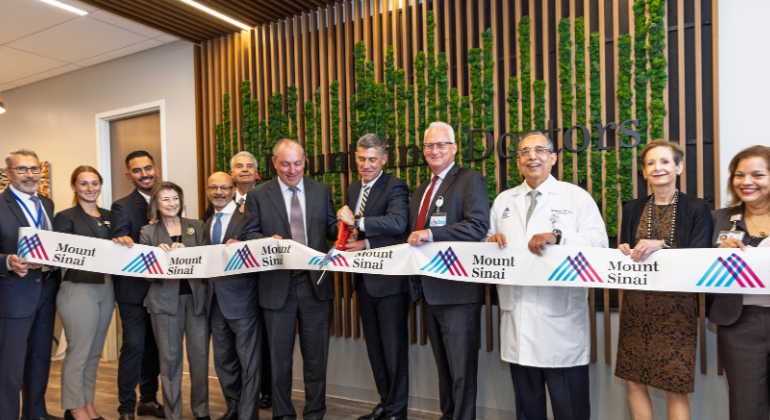Cells From Placentas Safe for Patients with Multiple Sclerosis
Early Evidence Suggests Value Treatment Effectiveness
Patients with Multiple Sclerosis (MS) were able to safely tolerate treatment with cells cultured from human placental tissue, according to a study published today in the journal Multiple Sclerosis and Related Disorders. The study, which is the first of its kind, was conducted by researchers at Mount Sinai, Celgene Cellular Therapeutics subsidiary of Celgene Corporation and collaborators at several other institutions.
While designed to determine safety of the treatment, early signals in the data also suggested that a preparation of cultured cells called PDA-001 may repair damaged nerve tissues in patients with MS. PDA-001 cells resemble “mesenchymal,” stromal stem cells found in many tissues of the body. Since the cells are expanded in cell cultures, one donor is able to supply enough cells for many patients.
“This is the first time placenta-derived cells have been tested as a possible therapy for multiple sclerosis,” said Fred Lublin, MD, Director of the Corinne Goldsmith Dickinson Center for Multiple Sclerosis, Professor of Neurology at Icahn School of Medicine at Mount Sinai and the lead investigator of the study. “The next step will be to study larger numbers of MS patients to assess efficacy of the cells, but we could be looking at a new frontier in treatment for the disease.”
MS is a chronic autoimmune disease in which the body’s immune system mounts recurring assaults on the myelin--the fatty, protective coating around nerve fibers in the central nervous system. This causes nerves to malfunction and can lead to paralysis and blindness. The disease usually begins as an episodic disorder called relapsing-remitting MS (RRMS), and for many sufferers, evolves into a chronic condition with worsening disability called secondary progressive MS (SPMS).
The new safety study was conducted on 16 MS patients (10 with RRMS and six with SPMS) between the ages of 18 and 65. Six patients were given a high dose of PDA-001, another six were given a lower dose, and four patients were given placebo. Any time the immune system is altered, say by an experimental treatment, there is always a risk for MS to worsen, noted Dr. Lublin. All subjects were given monthly brain scans over a six-month period to ensure they did not acquire any new or enlarging brain lesions, which would indicate a worsening of MS activity. No subjects showed any paradoxical worsening on MRI and after one year, the majority had stable or improved levels of disability.
“We’re hoping to learn more about how placental stromal cells contribute to myelin repair,” said Dr. Lublin. “We suspect they either convert to a myelin making cell, or they enhance the environment of the area where the damage is to allow for natural repair. Our long-term goal is to develop strategies to facilitate repair of the damaged nervous system.”
Collaborators in the study included the Swedish Neuroscience Institute in Seattle, WA, MultiCare Health System-Neuroscience Center of Washington, London Health Sciences Centre at University Hospital in London, the Clinical Neuroscience Research Unit at the University of Minnesota, the University of Colorado Denver, The Ottawa Hospital Multiple Sclerosis Clinic, and the MS Comprehensive Care Center at SUNY.
Dr. Fred Lublin has received research support and financial compensation as an advisory board member from Celgene, the study’s sponsor.
About the Mount Sinai Health System
Mount Sinai Health System is one of the largest academic medical systems in the New York metro area, with 48,000 employees working across eight hospitals, more than 400 outpatient practices, more than 600 research and clinical labs, a school of nursing, and a leading school of medicine and graduate education. Mount Sinai advances health for all people, everywhere, by taking on the most complex health care challenges of our time—discovering and applying new scientific learning and knowledge; developing safer, more effective treatments; educating the next generation of medical leaders and innovators; and supporting local communities by delivering high-quality care to all who need it.
Through the integration of its hospitals, labs, and schools, Mount Sinai offers comprehensive health care solutions from birth through geriatrics, leveraging innovative approaches such as artificial intelligence and informatics while keeping patients’ medical and emotional needs at the center of all treatment. The Health System includes approximately 9,000 primary and specialty care physicians and 11 free-standing joint-venture centers throughout the five boroughs of New York City, Westchester, Long Island, and Florida. Hospitals within the System are consistently ranked by Newsweek’s® “The World’s Best Smart Hospitals, Best in State Hospitals, World Best Hospitals and Best Specialty Hospitals” and by U.S. News & World Report's® “Best Hospitals” and “Best Children’s Hospitals.” The Mount Sinai Hospital is on the U.S. News & World Report® “Best Hospitals” Honor Roll for 2024-2025.
For more information, visit https://www.mountsinai.org or find Mount Sinai on Facebook, Twitter and YouTube.

Mount Sinai Researchers Move Closer to a Cure for Diabetes
Dec 10, 2024 View All Press Releases
Mount Sinai and U.S. Anesthesia Partners Form Alliance to Support New Anesthesia Practice
Dec 05, 2024 View All Press Releases
Mount Sinai Health System Expands Care in Staten Island
Nov 04, 2024 View All Press Releases
Mount Sinai Nurse Hosts Hypertension Series in Harlem
Oct 28, 2024 View All Press Releases
The Tisch Cancer Institute Emphasizes Critical Role of BRCA Testing For All Genders
Oct 14, 2024 View All Press Releases


